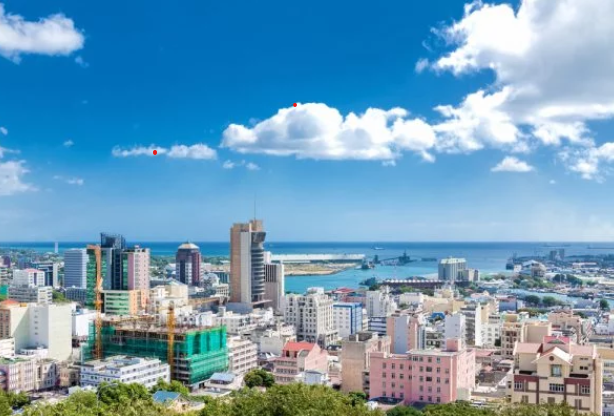|
After a challenging year for the property market the decision by the Reserve Bank’s Monetary Policy Committee to retain the repo rate unchanged at 6.5% and the mortgage rate at 10% is disappointing as we head into the festive season.
The news that inflation had dipped to a nine-year low of 3.7% (from 4.1% in September) along with a reasonably stable currency should have been enough to motivate a rate cut. The economy and consumers can do with some good news and it would have been a welcome boost as we head into the important retail season. Nonetheless, and despite perceptions, there has been plenty of activity in the market, but largely at the lower price bands. This year has been the tale of two markets - the busy low to mid-market to R1.8 million (R3 million in some areas) boosted by the favourable mortgage lending climate at the one end of the spectrum and the upper-end R10 million-plus market where little to no activity is taking place. The upside to the current conditions is that it is one of the best times to buy and this should remain the case during the early part of 2020. The interest rate is at the lowest level in years and the flat price growth means that there is a good window of opportunity for buyers. While anticipating an increase in the number of transactions, the tale of two markets will likely continue with activity concentrated below R1.8 million, supported by the low borrowing costs and favourable mortgage lending conditions. 2020 will start off with a market which remains oversupplied in most areas. Price growth is expected to remain flat in the 4% range at best and sellers will need to keep their asking prices market-related or risk not attracting buyer interest. The Springbok win has gifted South Africa a ray of sunshine and has shown what is possible and can be achieved if there is political will and commitment. It has lifted the mood in the country, and we hope that this can spill into the economy and property market. Until then property 2020 is likely to be more of the same. Article referenced from: https://www.property24.com/articles/no-rate-cut-disappoints-but-theres-great-value-for-savvy-home-buyers/29053
0 Comments
 As December swiftly approaches, many homeowners prepare to rent out their primary or secondary residences via Airbnb. Airbnb has provided landlords and homeowners alike with the opportunity to make an income from connecting directly with guests looking for a comfortable location to stay in South Africa. Travys Wilkins from independent digital brokerage, CompareGuru, says that there are important home insurance considerations that hosts need to take into account before embarking on a rental agreement. “It’s an exciting prospect to make money off your primary and most likely, largest asset, but there are several things to take into account before letting your property via Airbnb.” Wilkins highlights 4 factors to consider: 1. If something goes missing, Airbnb isn’t liable Airbnb provides protection to its hosts by covering “up to $1 000 000 for damages to covered property. This in the rare event of guest damages above the security deposit or if no security deposit is in place”. This essentially means that if a guest slips and falls in your house and wants to sue you, Airbnb has a mechanism in place for that. It also means if they burn the gazebo in the garden down, you’re covered. The Host Guarantee Program does not replace your homeowner’s insurance or renter’s insurance. There is a misconception that Airbnb will pay out should any household contents go missing. According to the site, “The Host Guarantee Program doesn’t cover cash and securities, collectibles, rare artwork, jewellery, pets, or personal liability. We recommend that hosts secure or remove valuables when renting their place. Not all insurance will cover damage or loss to property caused by a guest renting your space.” This means that if you don’t currently have home insurance or household contents insurance in place, it is highly advisable to do so before you open your doors to potential guests. 2. Inform your insurer Wilkins says that full disclosure to your insurance provider is always the best policy. “There is always a risk involved with renting your home to people you essentially don’t know, and it’s this risk that makes it even more important to let your insurer know about the rental agreement.” In the unfortunate event that you’re needing to claim, it’s always better that your insurer is aware of the rental. 3. Understand what is and isn’t covered Depending on your policy, ‘business pursuits’ on your private property may be excluded from your cover. It is highly advisable to contact your insurance provider to find out how renting a room in your house, via Airbnb, may affect your risk profile, and as a result, your premiums. “In some cases, homeowner’s insurance policies require visible signs of forced entry before a claim of theft is paid out,” says Wilkins. To help combat this, he suggests having a written and signed agreement with the Airbnb guest. The agreement will indicate that they will be held liable for any stolen or damaged items if there are no signs of forced entry. 4. Business or pleasure? If you choose to use Airbnb on a continuous basis, to earn a more fruitful income than a long-term rental, your insurer may regard this as a business. In such cases, you will be advised to take out business insurance, as home insurance policies do not cover business pursuits operated at home. Wilkins references the recent announcement by the City of Cape Town making it easier for homeowners to rent out their properties via Airbnb. The proposal allows for short-term letting of a house or flat for a period not exceeding 30 consecutive days for the same guest. “Should your rental agreement be longer term, then it becomes even more important to get the proper advice on the appropriate insurance coverage required to cover all eventualities.” “It’s critical to understand all the in’s and out’s of renting your property out for any period of time – be it a couple of days or a couple of months,” says Wilkins. Article referenced from: https://sapropertyinsider.co.za/2019/11/19/airbnb-ing-property-5-important-tips/ With increased financial pressure on everyone in the current economic climate, landlords need to be vigilant as to how they vet and process potential tenants - to avoid the risk of future defaults. Managing tenant risk has therefore become crucial. As with all risks, tenant risk is best managed upfront and I would recommend the following steps to do so.
1. Do a thorough credit, reference and FICA check It starts with doing a thorough credit check on prospective tenants and a reference check with their previous landlords. A credit check gives you insight into how they manage their financial affairs and a reference check with their previous landlords help you find out if they maintained the property in good condition, respected any house rules that were in place and paid their rent on time. Landlords and tenants might not be aware that estate agents are legally obliged to obtain proof of their identity and proof of address according to the Financial Intelligence Centre Act, commonly referred to as FICA. Your agent will require sight of all original documents or, alternatively, certified copies. Another vital aspect of a rental is when providing original identity documents, these will need to be seen in the presence of the document holder. 2. Confirm income earning with current employer The next step is an income reference check with their current employer. It is important to confirm the prospective tenant’s employment status as well as their income. As a general rule, the monthly rental should be more or less 30% of the tenant’s gross income. Unfortunately, in the current economic environment, many people have wound up with black marks on their credit records sometimes through no real fault of their own. When people lose their jobs, it’s difficult to pay the bills, so finding tenants with perfect credit records may not always be that easy. But there are ways to limit your risk if you find you need to accept a tenant with a questionable credit history. Firstly, take a larger deposit if the tenant has any marks against his name on his credit record. Secondly, ask for more than one month’s rent in advance and, thirdly, negotiate a shorter term lease, with an option to extend, preferably an initial period of six months. That way, over the six month period, you can assess the tenant yourself and determine whether you’d like to extend the lease or not. Of course, not everyone can afford a large deposit and more rent upfront, but holding out for a tenant whose references check out is often the right strategy. 3. Pre- and post-site inspection Prior to the tenant moving in, landlords would be advised to have a full-site inspection done, which would consist of a full report on the status of the property as well as photos to confirm these facts. It is also recommended that a follow-up site inspection is done when the tenant vacates at the end of the lease period, prior to refunding the deposit. Site inspections can also be done midway through the lease if the landlord has concerns about the tenant’s status. Remember that eviction is a lengthy and costly process. You could lose months of rental income, not to mention thousands of rands in legal fees if it comes to having to effect an eviction. Article referenced from: https://www.bizcommunity.com/Article/196/569/197358.html
|
SO WHY US?....1. Our core values of communication and transparency means that clients are never unpleasantly surprised during the process and what you see is what you get - great results, fast and friendly Archives
February 2021
Categories |






 RSS Feed
RSS Feed
